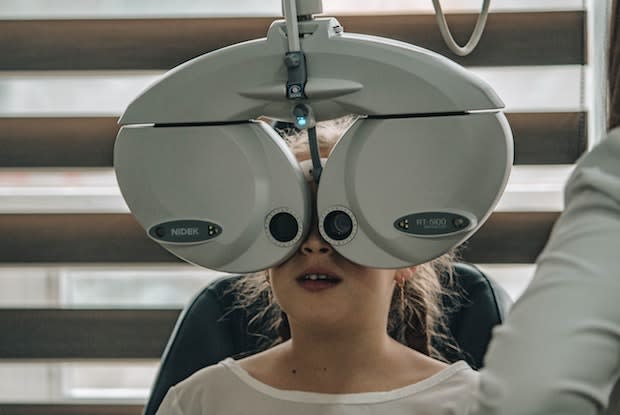Table of Contents
Chronic Lung Disorders
Flovent can vastly improve your lung function when used correctly. Flovent (fluticasone) is a corticosteroid used to prevent asthma attacks. It can be found in an aerosolized form (Flovent HFA) and powder form (Flovent Diskus). Flovent can improve symptoms of chronic lung disorders, including chronic obstructive pulmonary disorder (COPD). Asthma occurs when the airways narrow and swell, inhibiting your ability to breathe and exercise. [1]
COPD is also a chronic inflammatory lung disease that results in obstructed airflow from the lungs. COPD includes chronic bronchitis and emphysema. These conditions can significantly impact your daily activities. Luckily, medications like Flovent can make your breathing easier.
Symptoms of chronic lung disorders often include:
- Shortness of breath
- Wheezing
- Chest tightness
- Coughing or wheezing attacks [2]
How does Flovent work?
Corticosteroids are very useful in treating several conditions, including rashes, lupus, and asthma. Corticosteroids mimic the function of adrenal gland hormones in your body. When you take corticosteroids, your body’s hormonal levels are elevated, and inflammation is suppressed. When taken correctly, corticosteroids can reduce the signs and symptoms of inflammatory conditions like asthma.

Flovent is not an emergency inhaler and should not be used during an asthma attack. Flovent is a long-term inhaler that needs to be taken every day. It takes around 2-3 weeks for Flovent to take full effect. Flovent does not typically have any serious side effects, but you should be aware of Flovent’s interactions with other conditions. Read on to learn more about how to certain conditions interact with Flovent. [3]
Milk Allergies
Before starting certain corticosteroids, it is vital to tell your doctor about any allergies you have. This is important because some inhalers, including Flovent, contain traces of lactose. Milk allergies are the most common food allergy in children and adults. Those who are allergic to milk products can develop symptoms such as vomiting, swelling, rash, and upset stomach.
A person may also have lactose intolerance, which differs from a milk allergy. Lactose intolerance is caused by a deficiency in lactase. Lactase is an enzyme that helps break down the protein (lactose) in milk.[4] Flovent contains milk powder, so tell your doctor if you have a serious milk allergy. If your allergy to milk is severe, you may experience anaphylaxis (a life-threatening whole-body reaction to an allergen trigger). [5]
Adrenal Insufficiency
As described above, Flovent is a corticosteroid. Corticosteroids rely on the adrenal glands (glands above the kidneys) to produce hormones, including glucocorticoid and cortisol. Both of these substances are important to the body during physiological stress. Glucocorticoid is any group of corticosteroids that metabolize carbohydrates, proteins, and fats. These corticosteroids also possess anti-inflammatory qualities. Cortisol helps to control blood sugar levels, metabolism, and also helps reduce inflammation. [6]
When these hormones are suppressed, you can experience adrenal suppression (AS). Some studies show that if you are at risk for adrenal suppression, the use of inhaled corticosteroids could result in severe complications. When you take steroids to suppress inflammation in lung disorders, your adrenal glands temporarily shut down and do not produce cortisol. Your endocrinologist needs to keep an eye on your cortisol levels to make sure that you do not suffer serious side effects of AS. Those who are at risk for adrenal suppression include those whose bodies are under extreme stress, which can be caused by a severe illness, surgery, or trauma. [7]
Cataracts affect over 24 million people over 40 in the United States. Over half of Americans over 80 years old have cataracts. Cataracts involve a clouding of the clear lens of the eye. The clouding of the eye typically develops slowly, but can greatly disturb your vision as this disorder progresses. [8] This common eye problem can be caused by aging, genetic disorders, past eye surgeries, or medical conditions like diabetes. In less common cases, long-term use of steroid medications can also result in cataracts. The exact cause of cataracts is unknown, but several lifestyle factors can contribute to cataract development, including cigarette smoking, diet, and alcohol consumption, and long-term sun exposure. [9] Studies by the UK’s Royal National Institute for the Blind suggest that long-term inhaled corticosteroid use can increase your risk of cataracts, especially if you are already predisposed to the condition. Taking high doses of inhaled corticosteroids does not always make cataracts develop earlier, but may increase your risk later in life. Tell your doctor if you are at risk for cataracts or have experienced eye surgeries in the past. [10] Glaucoma is a disorder that damages the eyes optic nerve. Glaucoma occurs when fluid builds up in the front part of the eye, which increases pressure and damages the optic nerve. Glaucoma is more common in older adults over the age of 65. It is important to tell your doctor if you are over 65 and have already experienced eye pressure problems. Eye disorders associated with inhaled corticosteroids only occur when very high doses of steroid medications are taken. Those taking Flovent for asthma management typically do not consume enough of Flovent to cause these problems. Still, it is important to know about Flovent’s interaction for those at risk for glaucoma. [11] When someone inhales a corticosteroid, some of the medication can enter the bloodstream and transport to the eyes. If you take large doses of asthma medications (the amount varies depending on the medication), you should maintain close contact with your ophthalmologist to monitor eye pressure and reduce the risk of optic nerve damage. [12] Bone loss, or osteoporosis, is a disorder that causes bones to become brittle. Brittle bones are more susceptible to breakages. Bone loss occurs when the rate of old bone reabsorption is more than new bone creation. As is the case with glaucoma and cataracts, bone loss is more common in older adults. Post-menopausal women are at a higher risk of developing osteoporosis. This occurs because estrogen levels dip during menopause, and less estrogen can significantly affect female bone health. These bone problems may increase if you take high doses of inhaled steroids. [13] Inhaled steroids are less likely to cause bone loss than steroids taken by mouth. Steroid medications can affect the metabolism of vitamin D and calcium, which directly affect bone health. It is vital to tell your doctor if you have experienced bone fractures as a result of osteoporosis before starting medications like Flovent. [14] The content in this article is intended for informational purposes only. This website does not provide medical advice. In all circumstances, you should always seek the advice of your physician and/or other qualified health professionals(s) for drug, medical condition, or treatment advice. The content provided on this website is not a substitute for professional medical advice, diagnosis or treatment.
Cataracts
Glaucoma

Bone Mineral Loss
